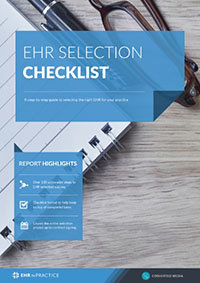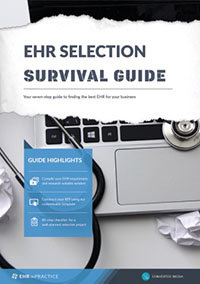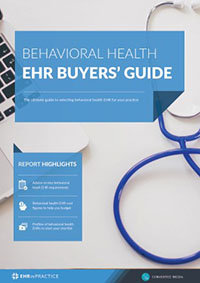Integrated EHR and practice management solutions: could they work for you?
Unlike EHRs whose function focuses primarily on clinical tasks, practice management software enables practices to provide better clinical care through making the administrative side of a practice more efficient.
Just like an EHR, practice management systems do not offer all the functionality that covers all of a practice’s requirements. Although a practice’s requirements may vary, common practice management features include: provider scheduling, medical billing, online patient portal, e-prescribing, billing, patient check-in, and financial reporting and benchmarking, among others. From a practical perspective, practices benefit from having these features fully integrated into one software package with their EHR. Although many practices are able to functional quite well without a full integrated practice management solution there are a number of compelling reasons why one should select a fully-integrated EHR and practice management solution.
One vendor, one solution - not many vendors, many problems
Perhaps the simplest and most compelling reason to select a fully integrated practice management solution rests in the benefits that arise from not juggling multiple software platforms that fulfill practice management functions. With multiple platforms comes multiple vendors to deal with, and multiple software to learn and multiple software platforms to coordinate and share data between. Ultimately, a practice can eliminate a drain on the administrative resources needed to manage multiple practice management solutions and reduce the amount of time required to train staff on multiple systems and coordinate information flows between department.
Interoperability and the ability to oversee all areas of a practice
Besides the practical benefits of only being required to manage one system and one vendor the most compelling reason for selecting a fully integrated practice management system involves the removal of barriers to data sharing and analysis within a practice.
An integrated EHR solution can allow administrators and clinical staff to monitor and analyze performance in different areas of a practice. An integrated and comprehensive practice management system can offer even more value to practices that have complex organizational structures or operate from multiple locations. In this context a fully integrated practice management solution can allow seamless coordination of business between departments and locations in areas such as staffing, billing and inventory management.
To further assist in performance analysis and many practice management solutions include a dashboard function that can allow users to view and generate reports on a number of metrics including revenue, number of patients seen, revenue generation trends, potential problems regarding the flow of patients to providers and the performance of workflows. Armed with this information, a practice can better understand the weaknesses and strengths of their practice and make more informed decisions regarding how to improve and capitalize on them.
As more vendors begin to offer fully integrated practice management solutions on the market coupled with the need to operate more efficiency due to constraints on reimbursement and increased operating costs practices, fully integrated practice management solutions should be viewed as a viable option when upgrading or revamping existing software.
Free white paper
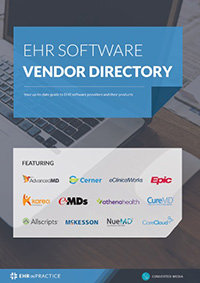
EHR Vendor Directory
Get the most up-to-date directory of EHR software vendors. Find the best software for your practice.
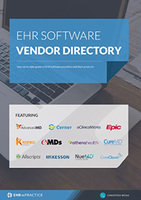
Featured white papers
Related articles
-

5 key stakeholders in your EHR selection
Learn about the individuals that, when consulted early and often, can make your EHR selection pro...
-

5 important areas of EHR training during implementation
Successful EHR implementation is not possible without crucial EHR training
-

The most important EHR features for practice management
The key functionalities any practice management software should have


